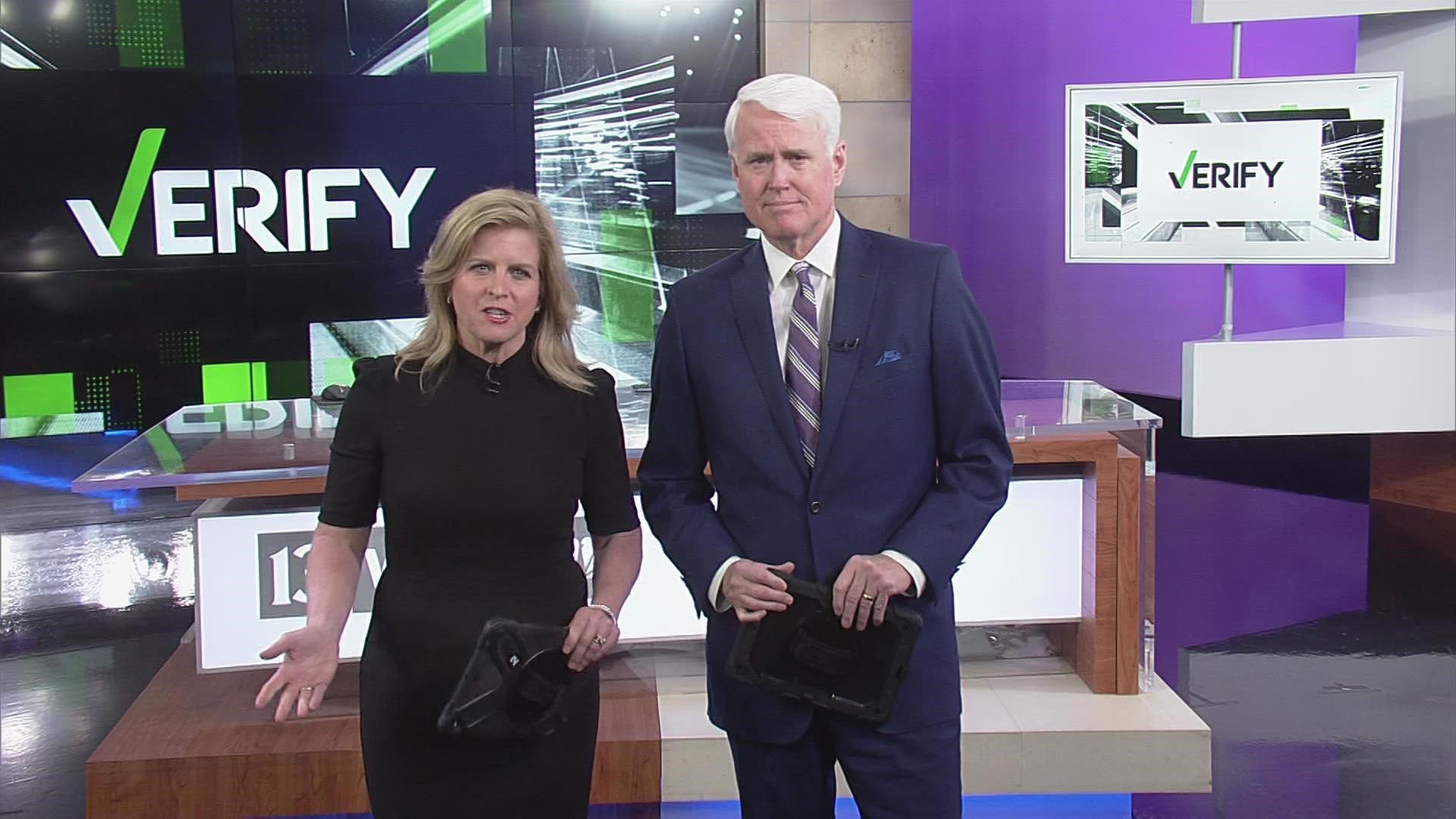INDIANAPOLIS — It is highly unusual for Supreme Court deliberations to be leaked before a final opinion is released – especially when it comes to a major decision such as the right to access abortions.
Monday's leak, first reported by Politico, means there are a lot of questions about what the Supreme Court’s draft opinion actually means.
Here is what we know and, just as important, what we do NOT know about the leak and the Supreme Court's pending decision.
What is true
The Supreme Court's early draft opinion reported by Politico is real.
Tuesday morning, the Supreme Court released a statement calling the document "authentic."
In that draft opinion involving a Mississippi abortion challenge, Justice Samuel Alito wrote that the nation’s two most significant Supreme Court decisions that legalized abortions “must be overruled.”
“Roe [v. Wade] was egregiously wrong from the start,” Alito wrote, adding “The Constitution makes no reference to abortion, and no such right is implicitly protected by any constitutional provision….”
The document is marked as a “first draft” circulated to other Justices on February 10.
We also know the Supreme Court is now investigating how the document was leaked. Chief Justice John Roberts condemned the leak as an “egregious breach of trust” and directed the Marshal of the Supreme Court to launch an investigation into the source of the leak.
What is false
Following the leak of the draft opinion, social media is full of reports that the Supreme Court has overturned abortion rights and, unlike the Politico story, those reports are missing important context.
Abortion opponents declaring victory might be premature in their celebration.
The Supreme Court released a statement Tuesday insisting the draft opinion "does not represent a decision by the Court or the final position of any member on the issues in the case."
Legal scholars tell Verify that initial drafts often change dramatically before they are final and, sometimes, justices even change their vote as opinions are being drafted.
“It is certainly not unusual that votes change,” said Steve Sanders, a law professor at Indiana University’s Maurer School of Law. “So this is not definitive. This is only a draft opinion being circulated in the hope that it will attract ultimately five votes. So nothing's over until it's over."
It's also important to note that if the draft opinion were to be published essentially as-is, it would not overturn abortion rights nationwide. It would eliminate federal protections, but each individual state would be permitted to determine what's legal and what's not.
“It is time to heed the Constitution and return the issue of abortion to the people’s elected representatives,” Alito wrote in his first draft.
Claims that the court has already overturned abortion rights are not true - at least not yet.
What we don't know
Despite an acknowledgment by the Supreme Court that the leaked draft opinion is authentic, the document still leaves important questions unanswered.
Has the court reached a final opinion since the draft was first circulated nearly three months ago and, if so, does it actually overturn earlier Supreme Court cases that establish a legal right to access abortions?
What language will be included in the final opinion?
When will the Supreme Court’s final opinion be announced?
Answers to all of those questions might come in a few weeks or late into the summer, depending on when the Court decides to publish its opinion.
Court observers will also be watching to learn if investigators can determine who is responsible for the unprecedented document leak, and whether that person (or people) will face criminal charges.

